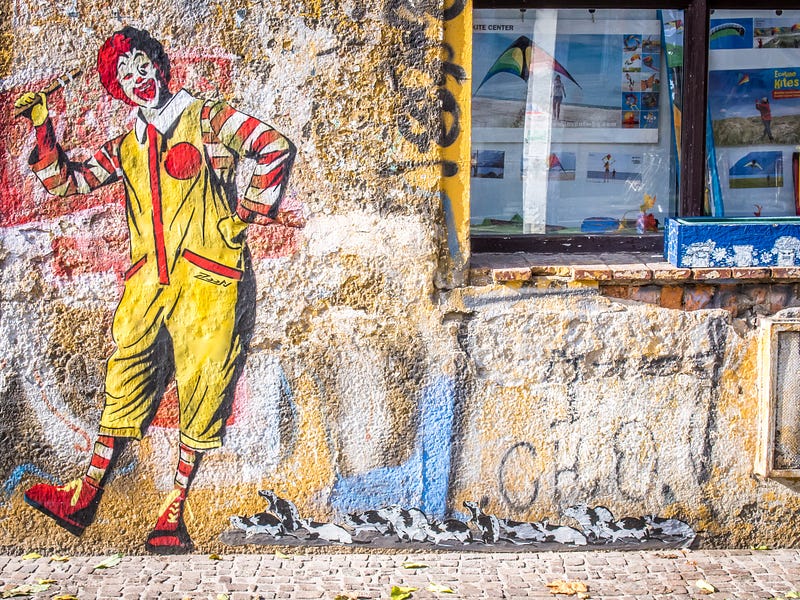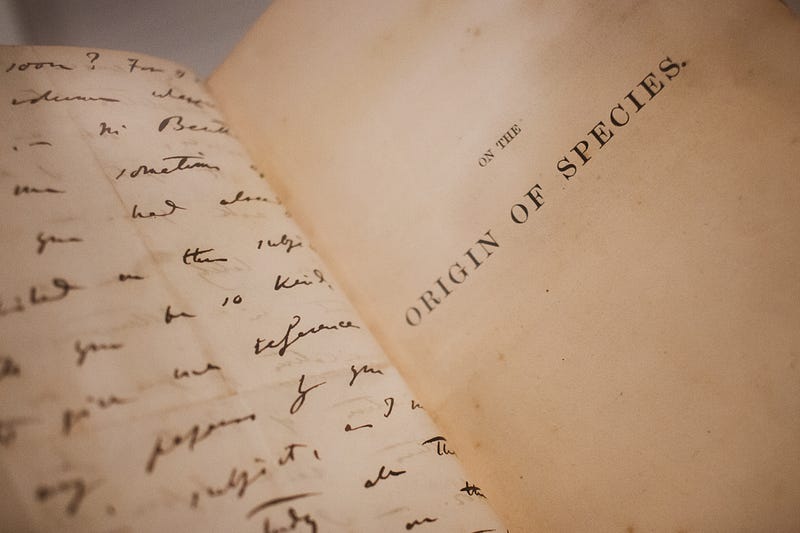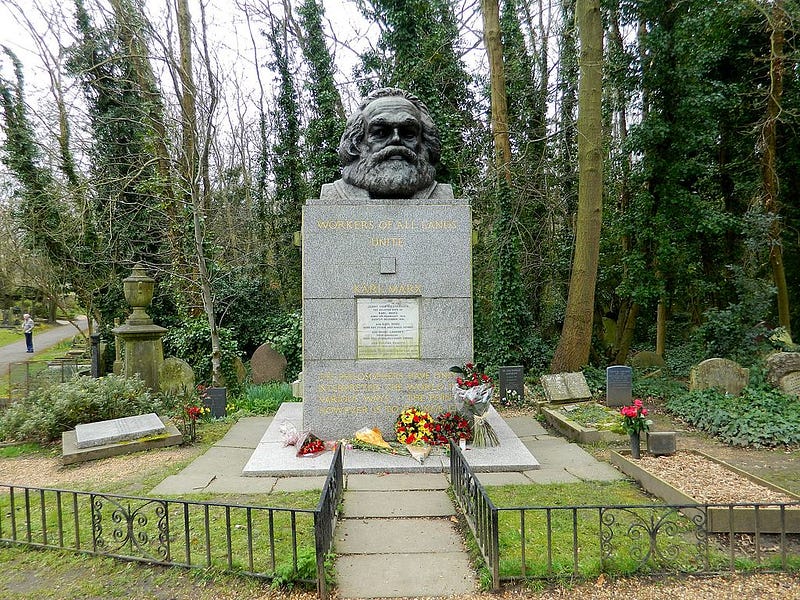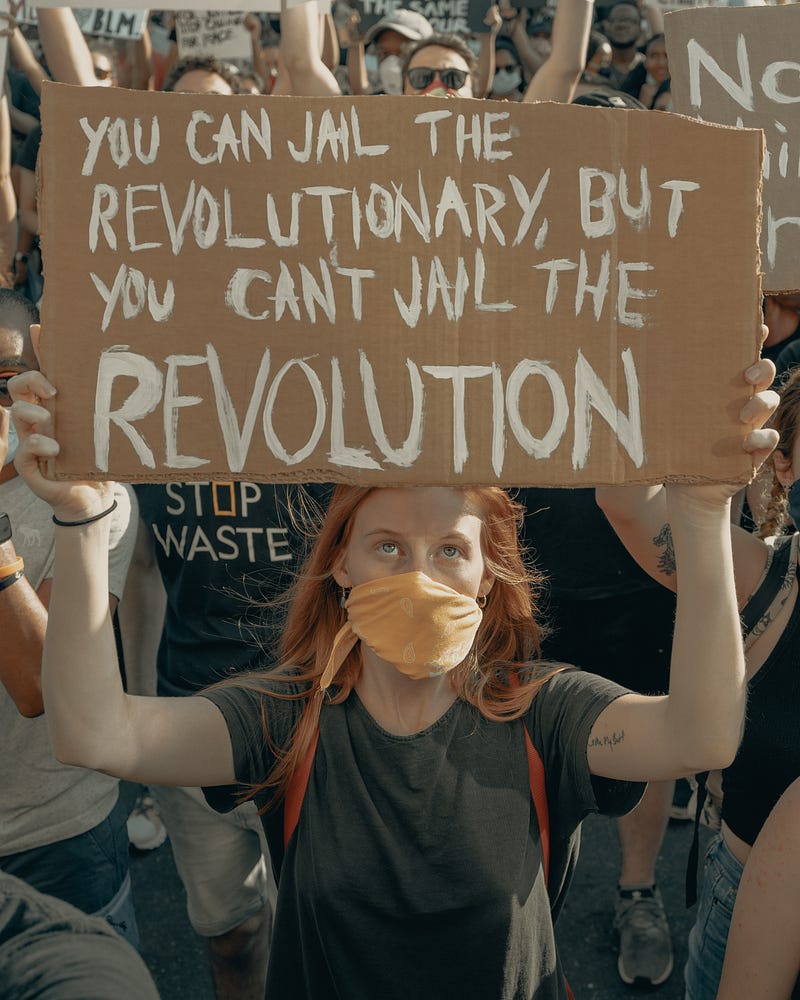Part 1 of a Discussion of Peter Foster’s Why We Bite the Invisible Hand Chapter 3 “Fears of a Clown: The Golden Arch-Enemy”
Foster turns his attention to a major U.S. company, McDonald’s, that he notes has long been a target of derision from American elites.
McDonald’s had long been the Golden Arch-enemy for Western elitists, the prime target for distaste of the fatty cravings of the hoi polloi and their plastic-toy-obsessed kids. (p. 73)
However, Foster’s approach is unusual because he focuses much of the chapter on a deal McDonald’s reached in 1988 to run a restaurant in Moscow. This was before the Soviet Union collapsed, so they were going to try to run this capitalistic enterprise in a communist country.
Foster illustrates in this chapter the complexity of the capitalist system that makes McDonald’s possible with the various suppliers and supporting infrastructure in the West that is wholly missing in the Soviet Union.
I will concentrate on that system in this blog. In the second part, we will learn the history of the Soviet Union and see the many challenges McDonald’s faced in trying to make their restaurant work in a communist system.
McDonald’s Success
As Foster notes, McDonald’s as we know it was founded by Ray Kroc. He did not originate the restaurant but recognized the efficiency of a hamburger stand being run by two McDonald brothers, as noted on McDonald’s own site about its history.
Kroc had the vision to franchise it in such a way that would give the owners the freedom of owning their business but maintaining the quality so consumers would get the same experience wherever they went. As the site above quoted Kroc, the slogan was, “In business for yourself, but not by yourself.”
Foster notes,
Founded by Ray Kroc, a former jazz musician, radio DJ, and milkshake-machine salesman, McDonald’s had turned fast food into a corporate art form, built on rigid standards of quality, service, cleanliness and value or QSC&V. (p. 69)
QSC&V is apparently a driving mantra for McDonald’s and one of many areas that will prove difficult when trying to establish the Moscow restaurant.
You can see their committment to QSC&V by the fact McDonald’s runs a Toronto Institute of Hamburgerology and a Hamburger University in Oak Brook, Illinois, its headquarters.
But another large part of their success, or even what makes it possible, is that McDonald’s operates in a capitalist system that encourages people to produce products McDonald’s needs so the restaurants do not have to be self-sufficient.
That may seem unnecessary to point out, but even something as simple as the wrappers for the burgers became something McDonald’s had to do once it was in Moscow. There were no businesses looking to expand their offerings by putting in bids to become a supplier.
Those suppliers — and the astonishing range of products and services that they fed into the McDonald’s system — were a function of a relatively free market where ingenuity, quality, efficiency and reliability were pursued and provided not because they were part of a master plan of statewide control “for the people” but because they were rewarded by financial success, and all that went with it. (p. 79)
Foster talks to a Canadian accounting consultant that joined McDonald’s to help out with the Moscow restaurant about how the Soviets had no understanding of profit or return on capital.
These are unheard of in the centrally planned system they lived in. But in the market-centered system McDonald’s was created in, they are the lifeblood. They are the incentives that guide decision-making and allow efficiency to exist.
Ronald McDonald represented a society where individuals and corporatons could come together to provide what people wanted, however mundane or complex that want might be. That made him a natural enemy both to everything for which the old Soviet Union had stood, and to anti-capitalist sentiment in the West.(p. 81)
What a chilling thought Foster provides us here. The success of capitalism is seen by “the anti-capitalist sentiment in the West” as the enemy.
These anti-capitalists do not see the amazing beauty of the invisible hand of Adam Smith.
Instead, they see a system of exploitation.
The giant chain was claimed to be a prime example of the homogenization of the world under “Anglo-Saxon” capitalism, not to mention a promoter of the evils of mass production, animaly cruelty, environmental degradation, worker exploitation, dangerous genetic food modifications and the general transformation of the world into a fatter and nastier place. (p. 73)
Conclusion
The problems we have today in our system are not a part of free market capitalism, but they occur when capitalism is being corrupted by interests exerting market power to interfere with the invisible hand, particularly when they can buy government power to do so.
To function properly, capitalism requires the people in it to be virtuous. Immoral people will do immoral things in whatever system they are in.
I am not actually a consumer of McDonald’s as one who primarily eats low carb, but having a choice like that is also a part of the capitalist system. The fact they can provide so much food cheaply is a triumph, and as we will see in part 2, it is something the Soviet system failed at miserably.
Reference: Foster, Peter, 2014. “Fears of a Clown: The Golden Arch-Enemy” Chapter 3 of Why We Bite the Invisible Hand, Pleasaunce Press.




